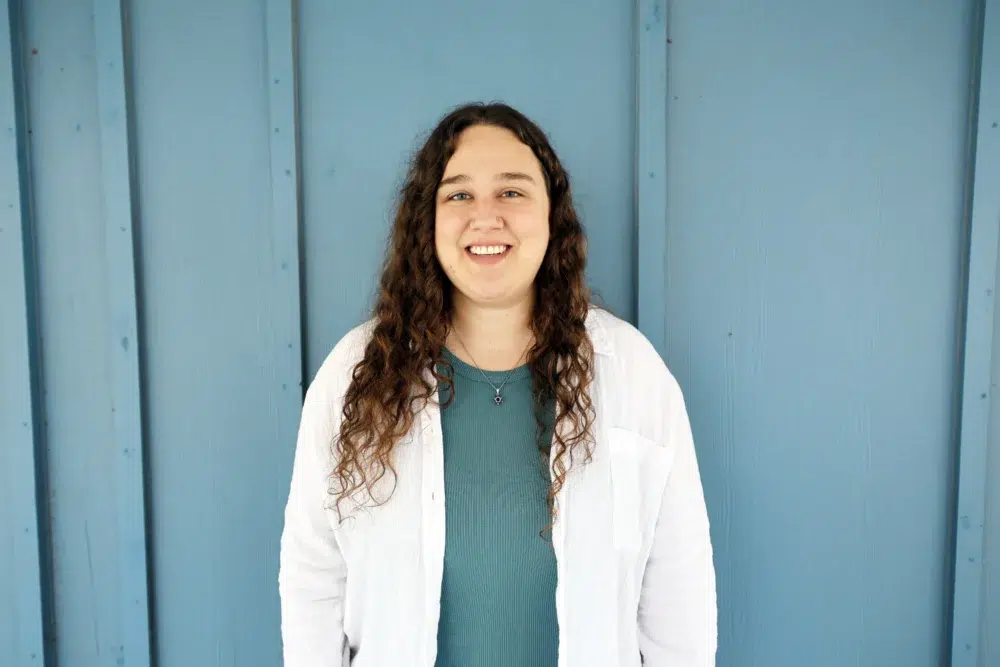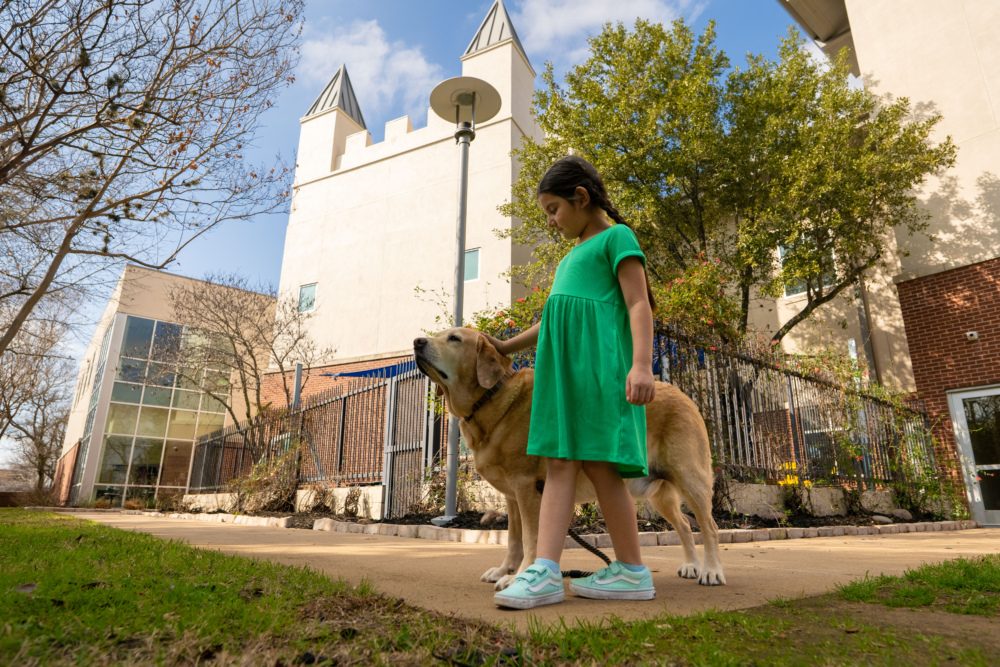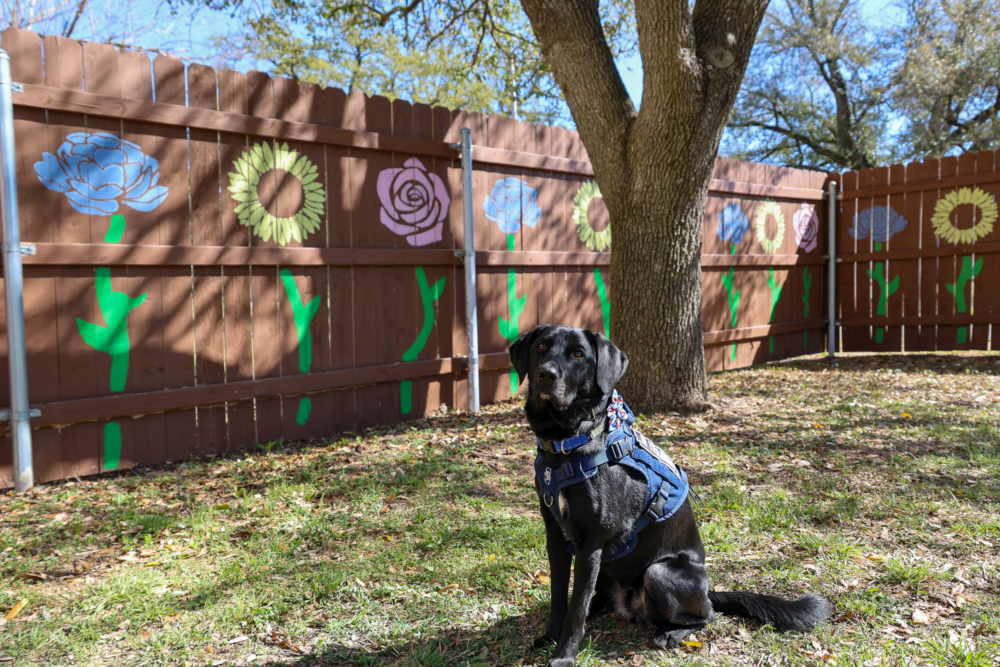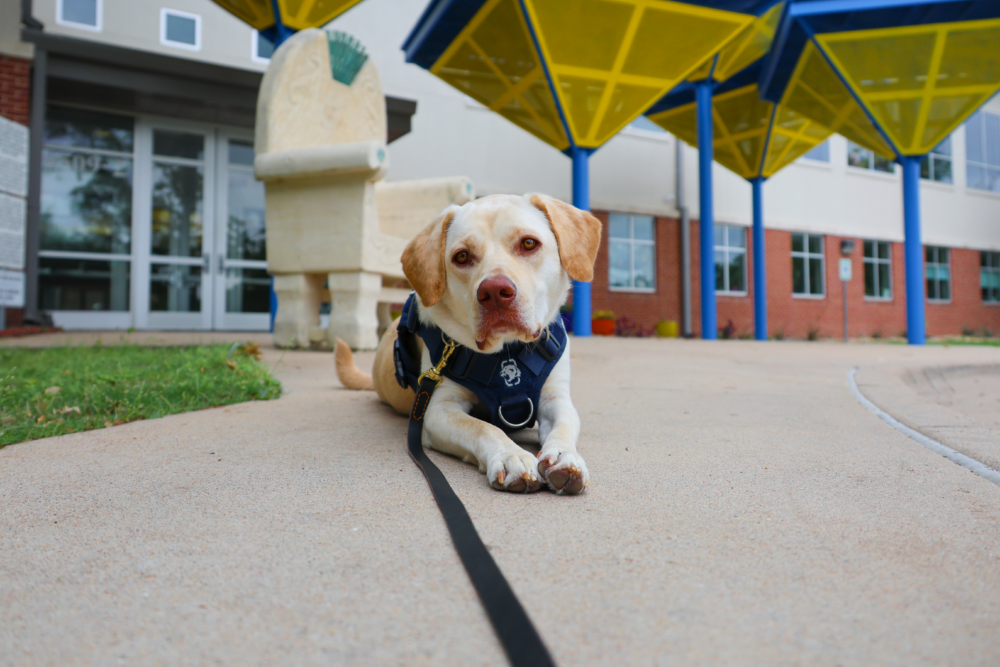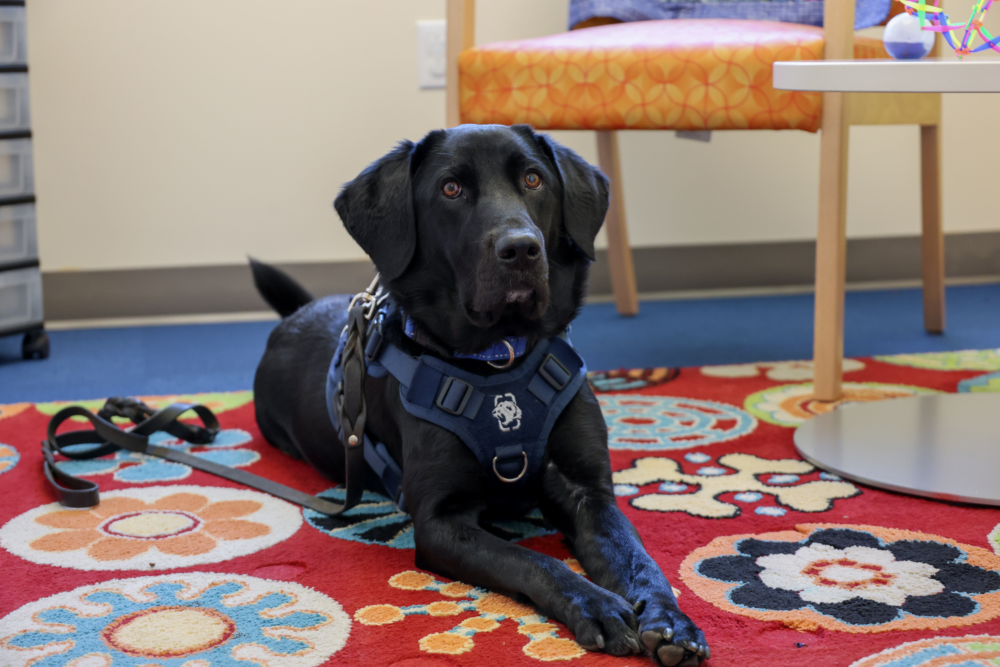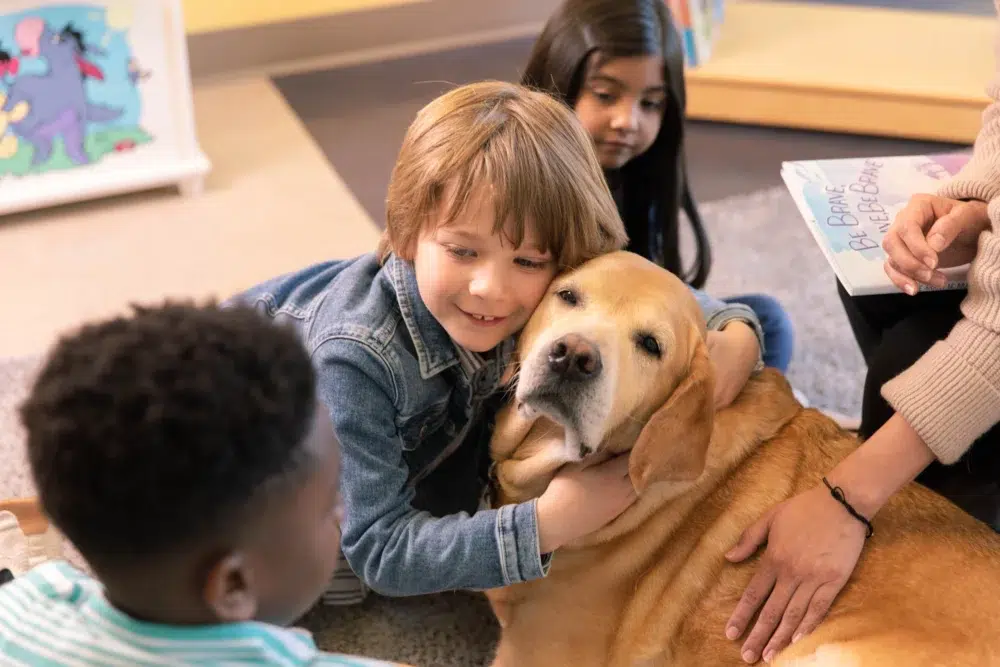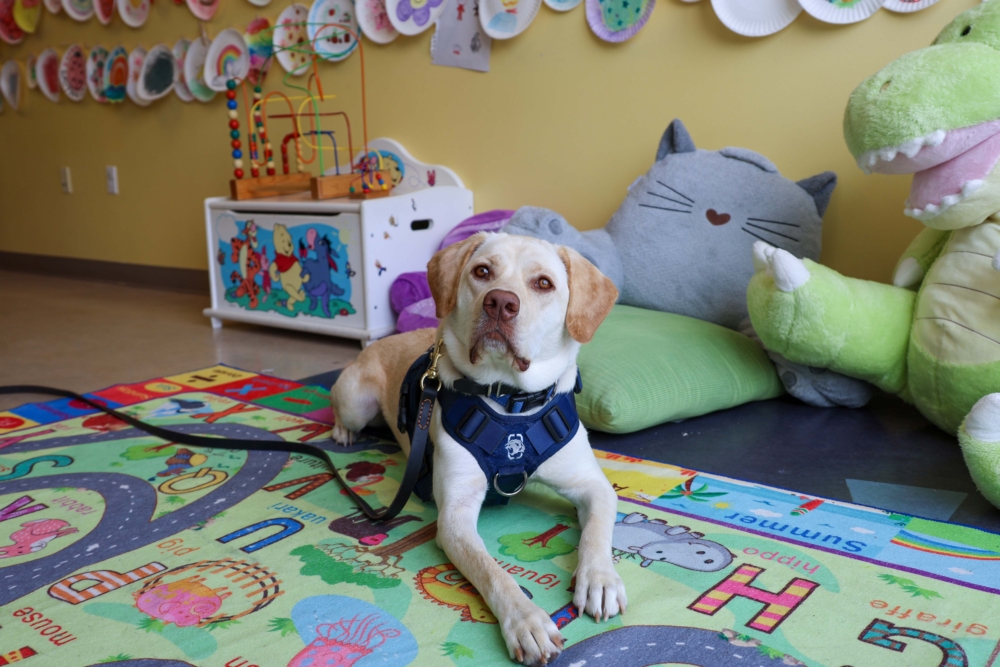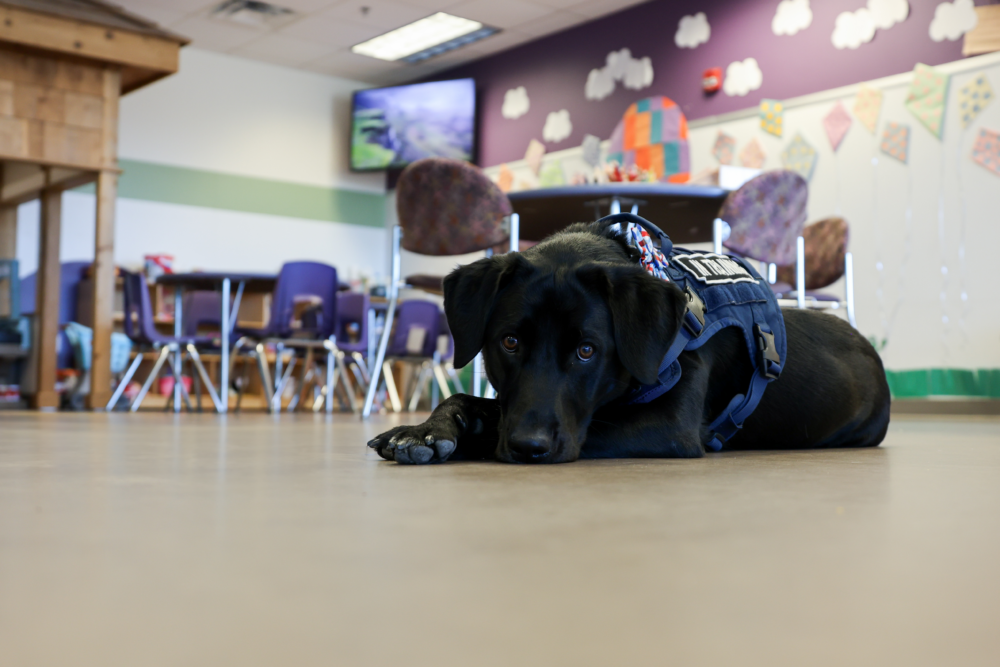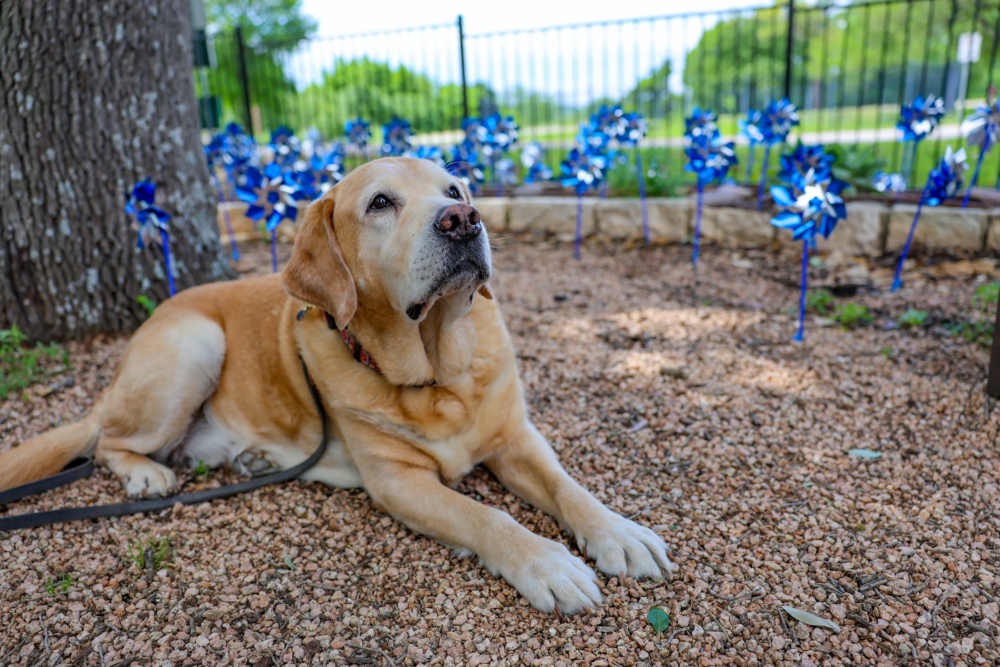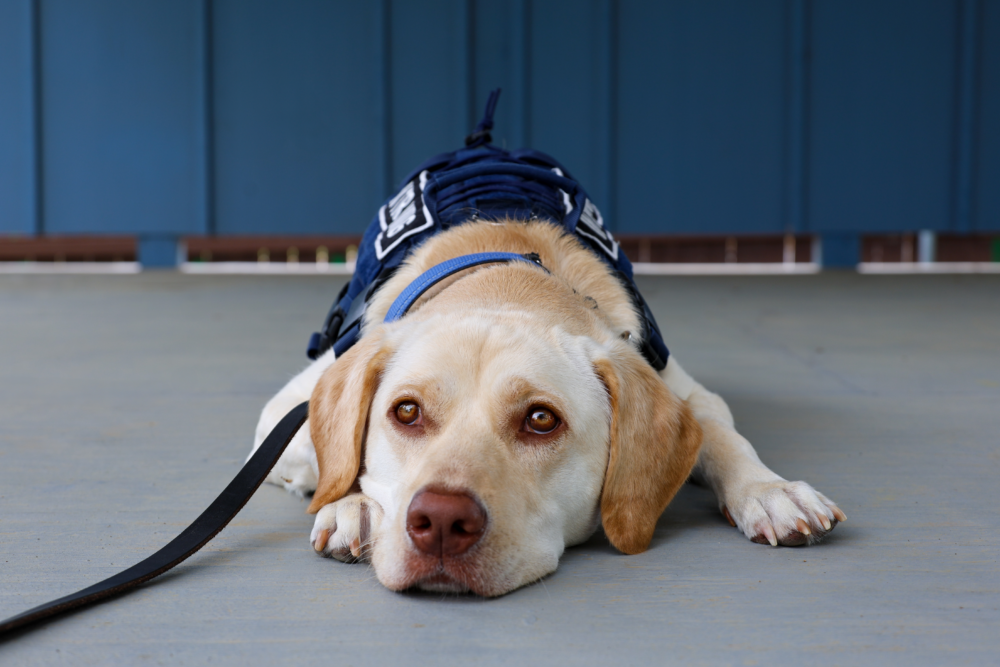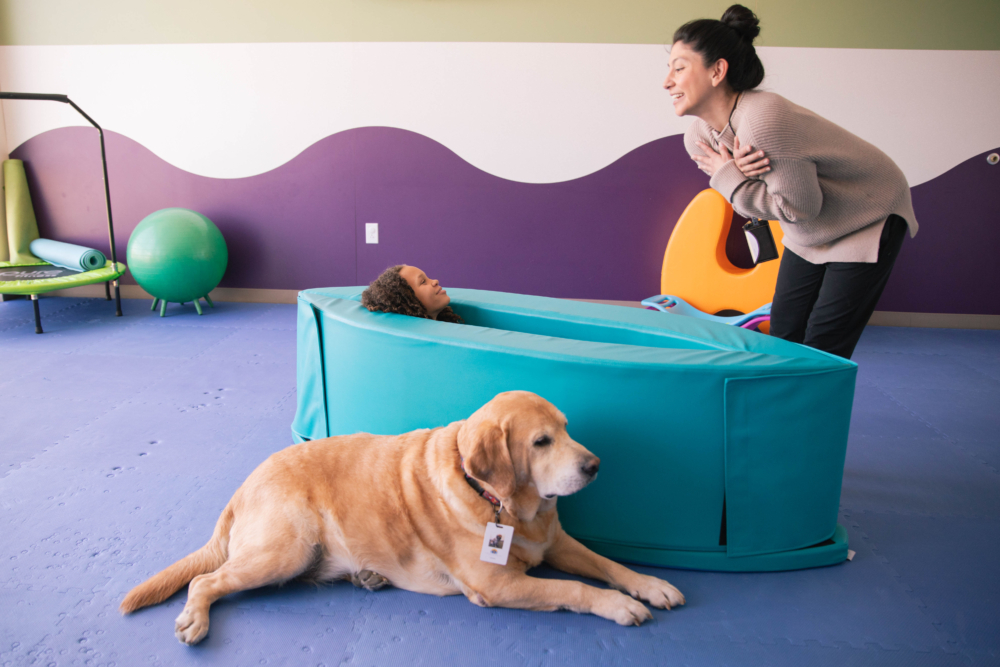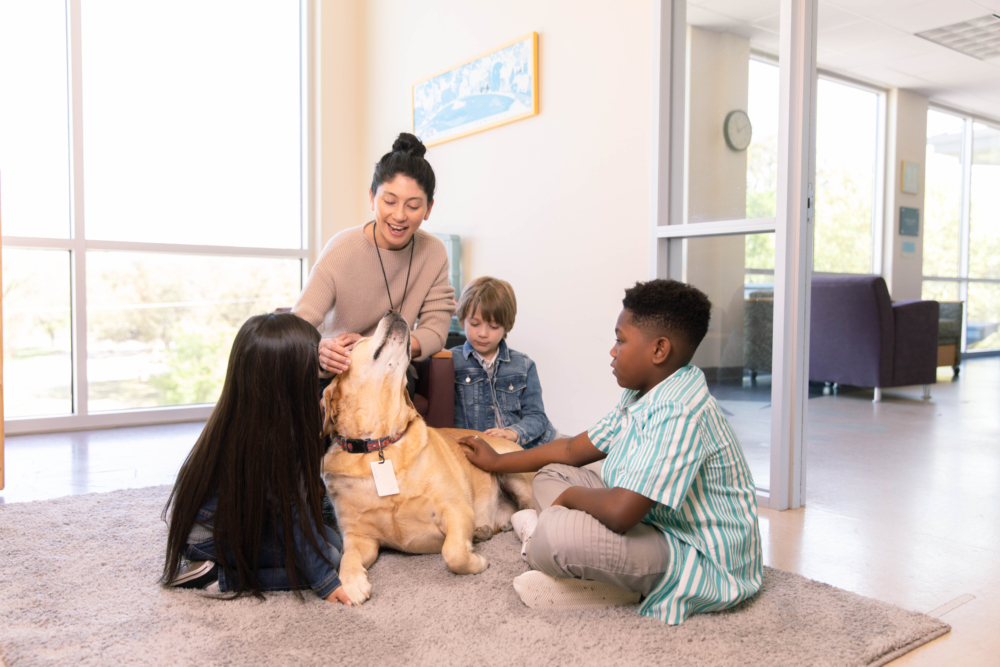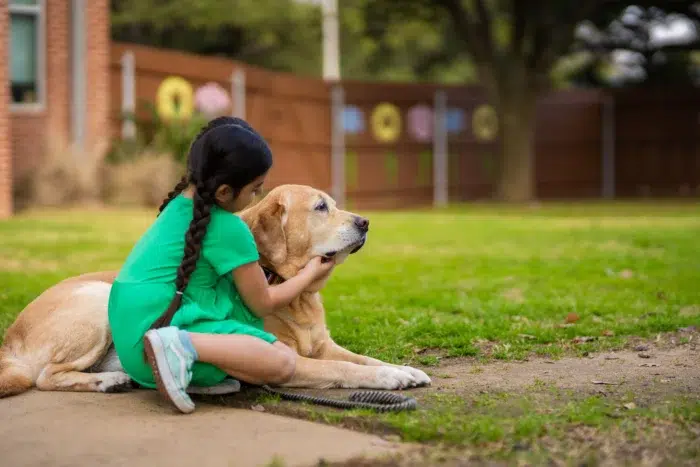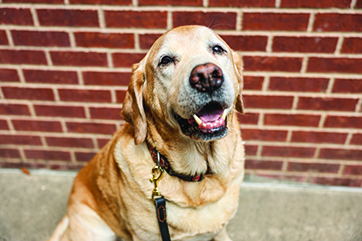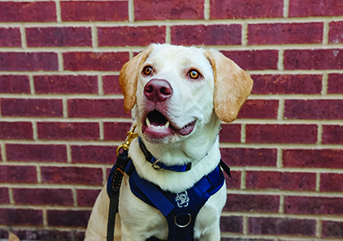Support & Healing Through Animal-Assisted Intervention
Facility dogs are more than companions — they’re lifelines for children navigating child abuse investigations and trauma recovery. Research shows interacting with dogs lowers our heart rates, reduces stress hormones, and provides comfort in even the most intimidating moments. This is why we have incorporated specially trained facility dogs into all our client services.
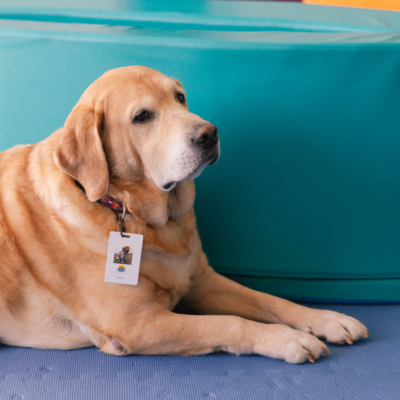
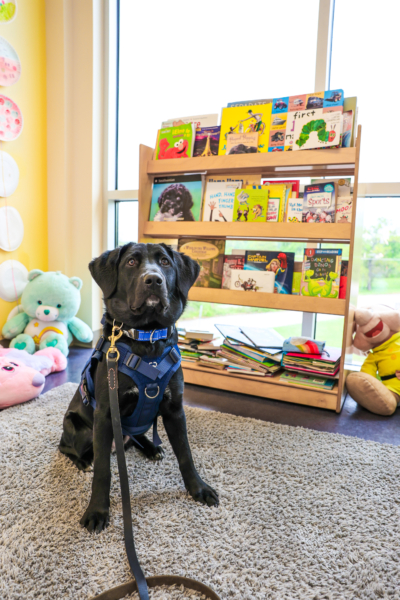
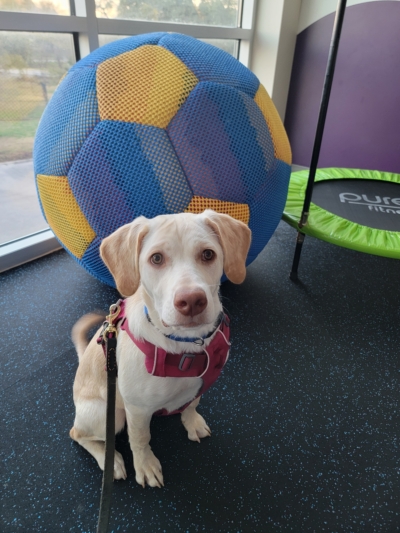
Facility Dog Services
Imagine being a child asked to share your story of abuse with a stranger or to testify in a courtroom full of people, face-to-face with your abuser.
That’s where facility dogs like Mickler, Rosa, and Star come in.
They inspire courage and provide steady, calming support for children during forensic interviews and court appearances. They also provide comfort and safety during medical exams, and they help ease the effects of trauma during experiential therapy sessions.
Their impact goes beyond children, also offering comfort to families and caregivers who may be overwhelmed as they navigate the investigation process. They even offer comfort to Center staff and other Child Protection Team partners who work tirelessly to protect the children in our community.
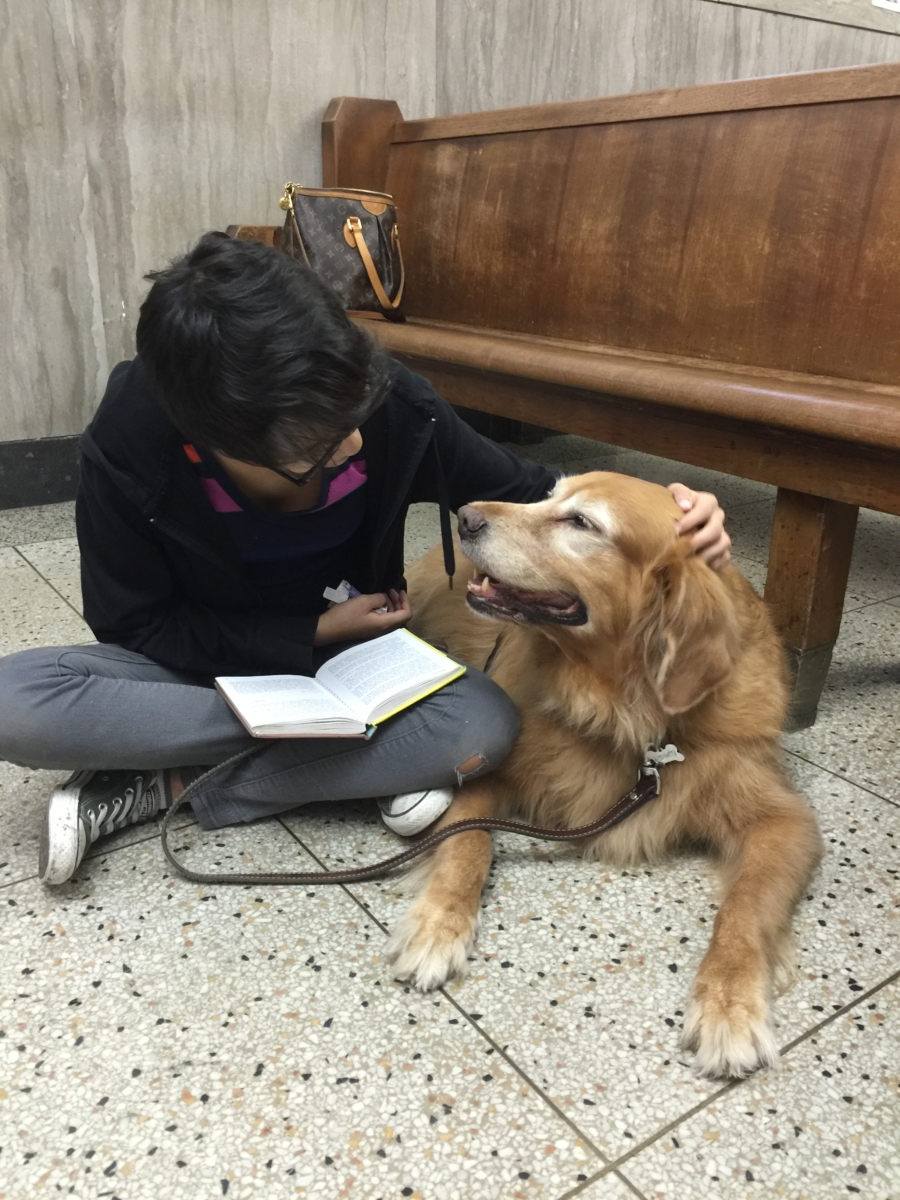
Where It All Began
Sidney joined in 2009 as the Center’s first therapy dog, but she quickly became so much more. During a difficult case where a young girl was too terrified to testify, Sidney was brought in as a last resort — and she bridged a gap the professionals couldn’t. She provided comfort and courage to that child, who was then able to take the stand, with Sidney serving as an anchor beside her.
Sidney was the first dog allowed in a criminal court in Texas — setting the precedent that kickstarted what is now our Facility Dog Program.
After Sidney passed, Mickler took up her legacy in 2017. We expanded our Facility Dog Program in 2023 with the addition of Star and Rosa.
Facility dogs provide unwavering acceptance, quiet strength, and safety where hurt abounds. They’re an anchor of hope and light in uncertain waters. Miriam Jansky, LCSW-S, Chief Clinical Officer
How They Make a Difference
Trusted Supporters
Inspiring courage in forensic interviews.
Caring Companions
Providing comfort during medical exams.
Therapeutic Partners
Enhancing connection during therapy sessions.
Emotional Anchors
Offering unwavering support on the witness stand.


Meet Our Facility Dogs
Mickler
Personality: Mickler is steady, reliable, and incredibly intuitive. He thrives on working with kids, offering a calm demeanor that provides a sense of security and stability as they navigate stressful situations. Always eager to help, Mickler’s natural ability to sense and respond to each child’s emotions makes him an invaluable part of the team.
Favorite Activities:
- Long naps
- Head scratches
- Greeting everyone he meets
Role: Since 2017, Mickler has been the cornerstone of our program, working with children during forensic interviews, therapy sessions, medical exams, court appearances, and in the Center’s family waiting area.
Star
Personality: Star is a joyful, affectionate, and focused dog who loves people. She brings an alert and playful energy wherever she goes and is always excited about coming to work. Her joyful personality and sense of humor makes her a natural fit for the Facility Dog Program.
Favorite Activities:
- Playing fetch
- Exploring new environments
- Chasing butterflies
- Spreading happiness
Role: Star officially joined the Facility Dog Program in 2023 and will begin working in 2025. She’ll work alongside Mickler and Rosa, providing comfort and support to children during forensic interviews, therapy sessions, medical exams, court appearances, and in the Center’s family waiting area.
Rosa
Personality: Rosa is a happy, curious, and focused dog who loves people and thrives on learning new things. With her alert and engaged demeanor, she’s always eager to take on new challenges and is a quick learner. She is a natural at connecting with children and bringing smiles to everyone she meets.
Favorite Activities:
- Playing fetch
- Learning new commands
- Splashing around in her splash pad
- Going on walks
- Enjoying belly rubs
Role: Rosa officially joined the Facility Dog Program in 2023 and will begin working in 2025. She’ll work alongside Mickler and Star, providing comfort and support to children during forensic interviews, therapy sessions, medical exams, court appearances, and in the Center’s family waiting area.
